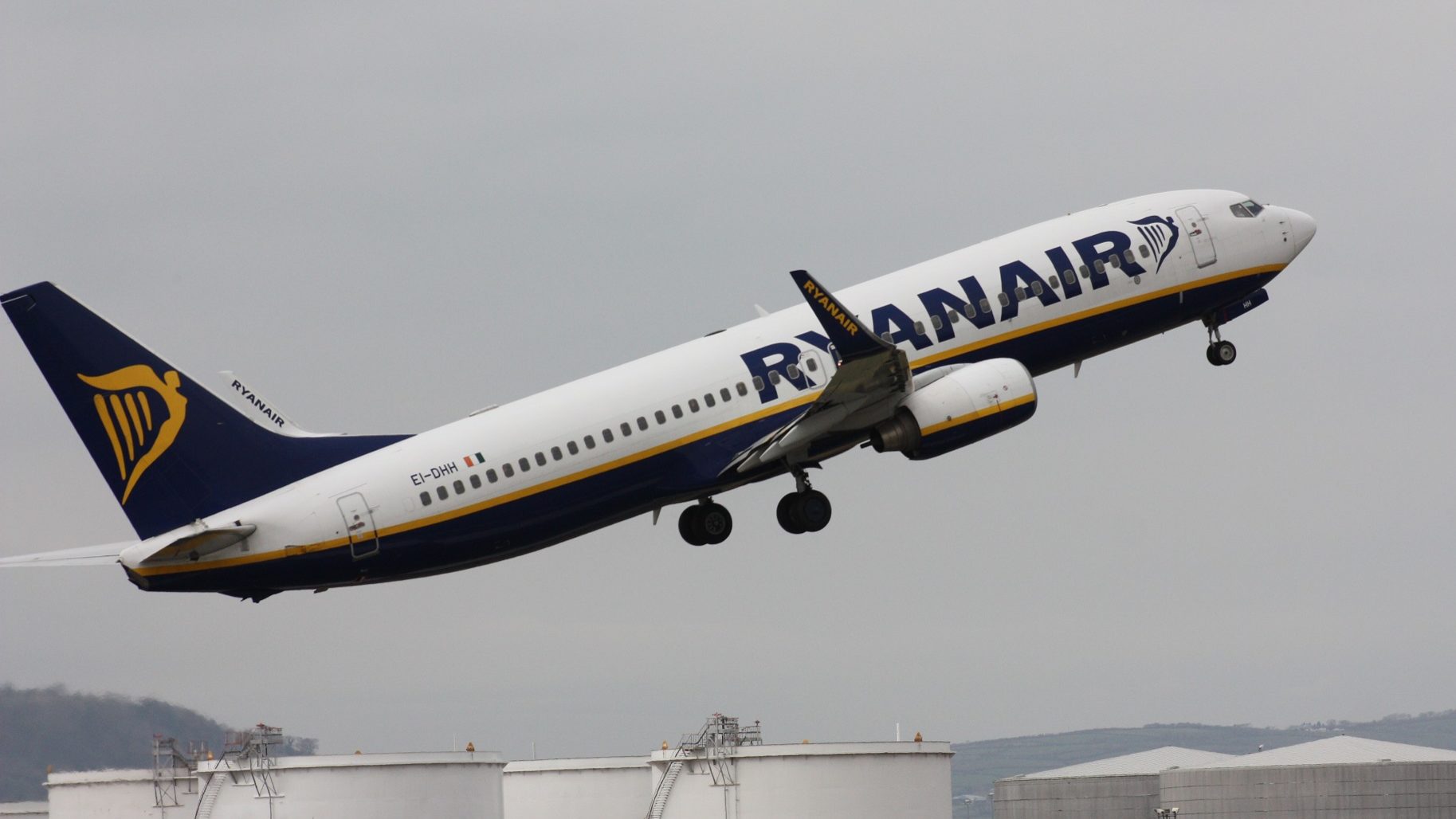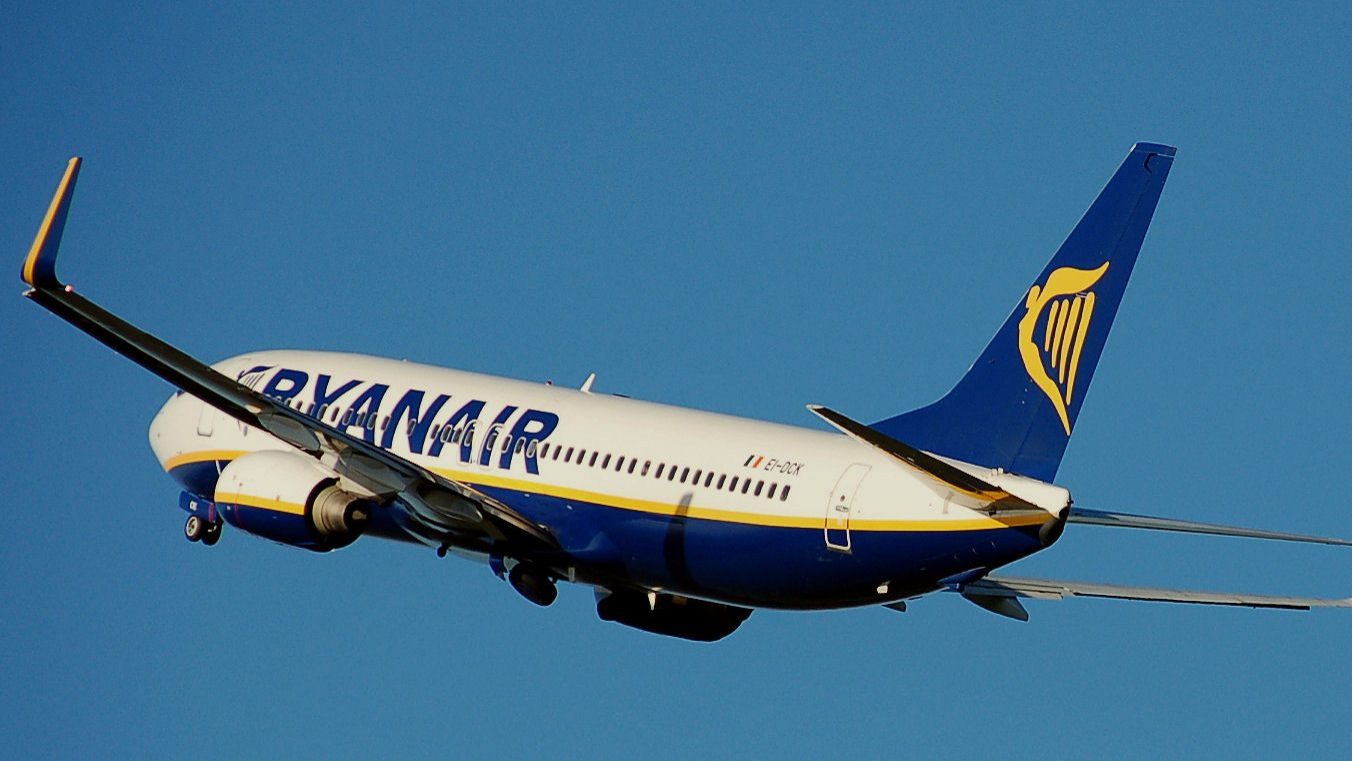Ryanair files fresh complaint to EU about €462M state aid to rival TAP
In May, the EU's Court of Justice annulled the commission's decision to approve the €1.2bn loan, judging it "insufficiently reasoned" but has not yet required its repayment by TAP.
Ireland-based low-cost airline Ryanair has filed a new complaint with the Court of Justice of the European Union about to a €462 million state subsidy for TAP, Portugal’s national flag carrier, which was authorised by the European Commission, according to reports.
Confirmation of the appeal filing last week was given to Público newspaper by an official Ryanair source.
This represents the second front in a legal battle opened by Ryanair against TAP; it last year filed a complaint regarding a €1.2-billion loan also approved by the European Commission, and which paved the way to the restructuring plan at the Portuguese airline.
In May, the EU’s Court of Justice annulled the commission’s decision to approve the €1.2bn loan, judging it “insufficiently reasoned” but has not yet required its repayment by TAP.
“The Commission’s decision declaring Portugal’s aid to the airline TAP compatible with the internal market is annulled for not being sufficiently reasoned,” reads the a release from the court, while going on to state that “the effects of the annulment – including the recovery of the aid – are suspended pending a new decision.”
At stake was an appeal filed in July last year by Ryanair against the state aid to TAP, with the argument that it violated EU treaty and competition rules. It had hoped that this would lead to the actual annulment of the commission decision of 10 June 2020 in which the EU executive gave the green light to the emergency aid.
Ryanair’s CEO, Michael O’Leary, argued in June that state support for TAP was not an investment, but taxpayers’ money “flushed down the toilet” of the airline, in comments at a news conference in June this year in which he rejected the argument of Portugal’s minister for infrastructure, Pedro Nuno Santos, that the Portuguese state had the right to invest in TAP.
O’Leary’s criticisms of state support led to an exchange of barbs with the minister, who brushed off what he called “meddling and lessons” from Ryanair, describing the investment in TAP as “structural” and accusing Ryanair of taking advantage of a “difficult situation” caused by the Covid-19 pandemic.
“Ryanair is a private company and has no business interfering in sovereign decisions taken by the Portuguese government,” he said.
In 2020, TAP was brought back under the control of the state, which now has 72.5% of its shares, after the company’s business was severely affected by the pandemic and the European Commission authorised state aid of €1.2 billion.
In April this year the commission approved a fresh plan for interim state aid of €462 million to offset losses from the pandemic and, according to the airline, provide cashflow until the restructuring plan was fully approved by Brussels.
According to Público, the government still must send Brussels a report by the end of September, with audited accounts certified by an external entity, in order to prove that the support was not excessive.
“If it has received too much money, TAP will have to return it,” the paper reports.
The government on 13 August said that it would send answers to questions raised by the commission about the plan by Thursday.
In its letter to the government, the commission had acknowledged the importance to Portugal of keeping TAP afloat, but expressed concern that the planned €3.2 billion in aid for restructuring violates competition rules and doubts that it would guarantee TAP’s long-term viability.
The letter was sent on 16 July, the date on which the commission announced a probe into the €3.2 billion plan to restructure the airline, and which has since been published on the EU executive’s website, though with information considered confidential deleted. It gives Portugal one month from the date of receipt of the letter to comment and provide all useful information to help clarify that EU law is indeed being complied with.

